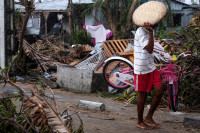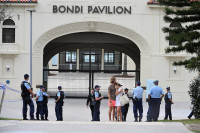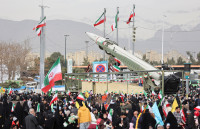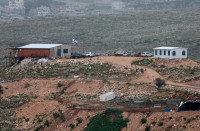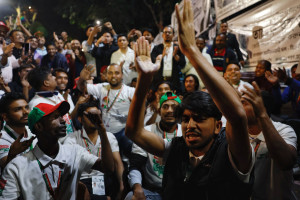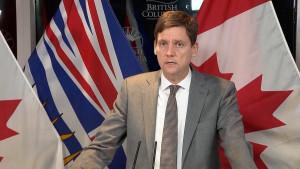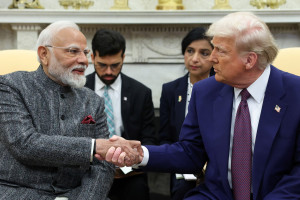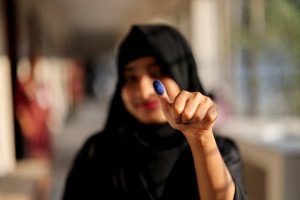A top UN official urged the United Nations Security Council yesterday to "collectively send a clear signal in support of democracy in Myanmar" as the 15-member body in an emergency meeting considered a possible statement condemning Monday's coup.
"I strongly condemn the recent steps taken by the military and urge all of you to collectively send a clear signal in support of democracy in Myanmar," Swiss diplomat Schraner Burgener, the United Nations' envoy to Myanmar, told the council according to her prepared remarks, reports Reuters.
"Let us be clear, the recent outcome of the election was a landslide victory for the National League for Democracy (NLD)," she said. "The military's proposal to hold elections again should be discouraged."
She briefed the 15-member council on the latest developments at yesterday's meeting.
The call at the meeting comes a day after Myanmar army took control of Myanmar and detained de facto leader Aung San Suu Kyi and a number of other politicians and declared a state of emergency, alleging fraud in the November elections.
The council was unable to agree on a statement about the country's military coup, with diplomats saying negotiations will continue, reports AFP.
"China and Russia have asked for more time," one diplomat told AFP following the behind-closed-doors videoconference meeting in New York that lasted just over two hours.
"A statement is still under discussion," confirmed another diplomat, also on condition of anonymity.
According to a draft of the text seen by AFP, the United Nations Security Council would call for a return to civilian power following Monday's bloodless coup in which democratically elected leader Aung San Suu Kyi and other top politicians were detained.
The text, drafted by Britain, would also call for Myanmar's military to "immediately release those unlawfully detained."
It would also demand that the one-year state of emergency be repealed and "for all sides to adhere to democratic norms." The draft does not mention sanctions.
To be adopted, it requires the support of China, Myanmar's main supporter at the UN and a veto power as a permanent member of the Security Council.
During the Rohingya crisis in 2017, China thwarted any initiative at the council to meet on Myanmar or issue joint statements. Beijing insisted the brutal military crackdown of the Muslim minority was an internal issue.
Britain, which holds the rotating council presidency for the month of February, had long planned to hold a meeting on Myanmar this week, but brought it forward given the circumstances.
China had demanded the discussion take place in private, diplomats told AFP.
Its foreign ministry had on Monday called for all sides in Myanmar to "resolve differences".
'Targeted sanctions'
Britain's ambassador to the UN, Barbara Woodward, told reporters after the meeting that she hoped the council will "be able to speak with one voice".
"Discussions will continue among Council colleagues on next steps," she added.
Amnesty International and Human Rights Watch released statements calling on the council to impose targeted sanctions against Myanmar military leaders and a comprehensive global arms embargo.
The United Nations also raised fears on Monday that the coup in Myanmar will worsen the plight of some 600,000 Rohingya Muslims still in the country.
A 2017 military crackdown in Myanmar's Rakhine State sent about 750,000 Rohingya Muslims fleeing into Bangladesh, where they are still stranded in refugee camps. UN Secretary-General Antonio Guterres and Western states accused the Myanmar military of ethnic cleansing, which it denied.
"At this point in time, we must ensure the protection of people of Myanmar and their fundamental rights. We must do everything to prevent violence from breaking out," Burgener said.
"There are about 600,000 Rohingyas that remain in Rakhine State, including 120,000 people who are effectively confined to camps ... they cannot move freely and have extremely limited access to basic health and education services," UN spokesman Stephane Dujarric told reporters in New York.
"So, our fear is that the events may make the situation worse for them," he said, reports Reuters.
Meanwhile, the United States formally determined yesterday that Myanmar's military carried out a coup, legally requiring an end to US assistance to the government, a day after US President Joe Biden threatened to reimpose sanctions on Myanmar and called for a concerted international response to push the army officials into relinquishing power.
Biden condemned the military takeover on Monday and called for a concerted international response to push the army officials into relinquishing power, terming the coup and detention of Suu Kyi "a direct assault on the country's transition to democracy and the rule of law".
The crisis in Myanmar marks the first chief test of Biden's pledge to collaborate more with allies on international challenges, especially on China's rising influence, in contrast to predecessor Donald Trump's "America First" approach.
"The international community should come together in one voice to press the Burmese military to immediately relinquish the power they have seized, release the activists and officials they have detained," Biden said in a statement.
"The United States removed sanctions on Burma over the past decade based on progress toward democracy. The reversal of that progress will necessitate an immediate review of our sanction laws and authorities, followed by appropriate action," he said.
Suu Kyi's National League for Democracy party called for the release of Aung San Suu Kyi and other detained leaders yesterday, describing the coup a day earlier as a "stain" on the military's history.
Speaking in Beijing, Chinese Foreign Ministry spokesman Wang Wenbin said the government was in touch with "all sides" about the meeting and the international community's actions should contribute to "a peaceful resolution".
The military takeover ousting Aung San Suu Kyi's government from power in Myanmar was "inevitable", the country's army chief said yesterday.
"This way was inevitable for the country and that's why we had to choose it," said General Min Aung Hlaing, according to the military's official Facebook page.
Protest in Yangon, communications restored
In the biggest public display of anger so far, people in Yangon banged on pots and pans and honked car horns and chanted "evil be gone"— in the first widespread protest against the military coup.
"It is a Myanmar tradition to drive away evil or bad karma by beating tin or metal buckets," said Yangon resident San Tint.
People have not taken to the streets so far in a country with a history of bloody repression of protests.
Medics in at least 20 government hospitals rallied to a campaign of civil disobedience against the generals and cut short a tentative transition to democracy. Doctors threatened to stop work even with coronavirus infections still rising steadily in the country of 54 million.
Phone and internet connections were running again yesterday, but the airport in the commercial hub of Yangon was closed.
Banks in Yangon reopened after halting financial services a day earlier due to poor internet connections and amid a rush to withdraw cash.
The whereabouts of Suu Kyi remained unknown.
The news article was previously published in The Daily Star which is a part of Asia News Network.





 9.12°C Kathmandu
9.12°C Kathmandu
